As the class of 2011 graduates and bright young minds step out into the real world, we ask you, our readers to vote for the best cities where our young friends can unpack their bags and start a new life.
Unlike about ten years ago when the go-to cities only included the four metros and perhaps Hyderabad, young professionals are now choosing non-traditional centres such as Ahemedabad, Chandigarh and Pune among others.
Employers in Ahmedabad for instance, keen on having fresh talent, are even offering far better salaries than those in the other states.
So even as Ahmedabad doesn't exactly fit into your idea of a 'young city' what with Gujarat being a dry state and pubs and discotheques being out of the question, the city we are told is a great place if making money is higher on your agenda than clubbing.
Here are some of the cities you can explore if you're a young professional looking to unpack your bags and start a new life.
Vote for your favourite!
Pune
Image: Magarpatta Cyber City, PunePhotographs: Wikimedia Commons
The second largest city in Maharashtra, Pune is often considered to be the extended suburb of Mumbai, the state's capital.
In its early days, Pune was often considered to be pensioner's paradise today it has a huge young population largely because of the students who study there and employees in the IT sector.
The city has come a long way since Kirloskar Engineering set up shop in 1945. Today it has a booming automobile industry with companies such as Tata and General Motors having set up shop around it.
As also, the IT sector has got a huge boost since the Hinjewadi IT part has come up with companies such as Infosys, Wipro, TCS, Cognizant, Symantec and Tech Mahindra, among others have set up their businesses here.
Vandana Bhalla who comes from Bhilai works in the insurance sector in Pune.
She says that Delhi -- where her family belongs -- was never really 'my city'. "I was in delhi for about 4-5 months and because of the mentality of the people there, I chose Pune.
It has been five years since she moved to Pune and confesses that the city offers everything she could have asked for.
Bhalla's job involves late nights but never once has she felt unsafe in the city. Her parents, she tells us, have also never been worried about her safety.
When we asked her to rate Pune as a city to live and work in on the scale of 1 to 10, "Nine!" came the reply.
However for a non-Maharashtrian, Pune does throw its share of challenges. "I don't always enjoy the local food," she says adding that not knowing Marathi, the local language is a huge impediment.
"If you don't have a two-wheeler or a car, travelling also can become an issue," she warns.
Bhalla adds, "If you have to rent a house, you usually have to go through a broker."
And while being in Pune does offer her some amount growth prospect, Bhalla says that isn't as good as in a big city like its neighbour, Mumbai.
However unlike Mumbai, Pune offers her breathing space. She lives close to work, a rarity in Mumbai. And even as nightlife options are many, Bhalla is more a shopping and movies person for which she has many, many options.
"The cost of living is slightly higher in Pune if you compare it with let's say a town like Bhilai," she laughs, "But overall it is a great city to live in."
Mumbai
Image: A scooterist stops in front of Chhatrapati Shivaji Terminus railway stationPhotographs: Arko Datta / Reuters
There is a reason why Mumbai is called the city of dreams.
The second largest city in the country by population and the richest, Mumbai has every possible industry you can thing of -- from Bollywood and media to export, shipping and finance.
It also houses five of the Fortune Global 500 companies: Reliance Industries, Bharat Petroleum, Hindustan Petroleum, Tata Steel and the State Bank of India.
Mumbai is also known to be a city of budding entrepreneurs. It is no surprise that the Globalization and World Cities Study Group (GaWC) ranked Mumbai among the fastest cities in India for business start-up in 2009.
With a buzzing nightlife and unlimited options for eating and going out, Mumbai is perhaps the city for the young.
In the 90s Mumbai also saw a lot of IT and outsourcing companies mushrooming on a large scale.
Shivraj Tripathi* works in one such IT firm. He has largely lived in Mumbai and Hyderabad.
After having spent his initial years in Mumbai. Tripathi had recently moved to Hyderabad after a software company hired him for their office there.
So Tripathi spent a little over a year and half in the software capital of India before returning to Mumbai at the first given opportunity.
"Mumbai has better opportunity," he says, "Besides it is far more cosmopolitan than Hyderabad can ever be."
"The city offers better facilities, great transport opportunities, varied cuisines and the fact that should you feel terribly hungry at night you are never too far from a restaurant or a dhaba."
Tripathi continues, "Mumbai also has great public transport, warm and welcoming people and is perhaps the most secure city in Mumbai for women. I've been out and about in the nights and there has always been a strong police presence."
However he adds that travelling in crowded local trains can be pose a huge issue as can the lack of Marathi speaking skills. Rent, Tripathi says, can be a killer too.
"In other cities you pay only a few months' rent as an advance deposit. In Mumbai it is 10 months at the minimum. That can be quite expensive."
Yet, for its energy, the spirit, accessibility to daily necessities and the tremendous opportunities it offers, Tripathi says he'd chose Mumbai over any other city and if he had it his way he'd probably never leave it.
Hyderabad
Image: HITECH city, HyderabadPhotographs: Srisez, Wikimedia Commons
Hyderabad, once known as the city of the Nawabs, has undergone a huge transformation since Chandrababu Naidu threw his state open to IT companies in the '90s.
Since then the city has become home to a lot of young Indians and boasts of a great nightlife and lots of modern eateries to choose from.
Besides IT, the Pharma and Biotech industry is another robust industry in Hyderabad as is Retail and Real Estate.
Amit Prakash has been working in a major software company in Hyderabad for the last four years.
Prakash, a native of Uttar Pradesh came to Hyderabad after Satyam recruited him on his college campus.
The young software engineer who rates the city as one of the best in the country to live and work in says that its climate is what he enjoys the most. "It is reminiscent of my hometown," he says.
"Besides with tons of job opportunities in IT sector it made a lot of sense for me to work here. Moreover, the cost of living in Hyderabad is comparatively cheaper than in other cities. In under Rs 10,000 a single person can live quite comfortably.
"I can actually afford to live close to my place of work," he says, "Something I won't be able to do elsewhere.
Prakash says that even though the public transport system in Hyderabad is nowhere close to the one in Mumbai, local trains and buses are fairly reliable. "These days there are also air conditioned buses too," he says.
The cost of living, Prakash says, is fairly affordable. "Five star accommodation is affordable in Hyderabad, again something that you can never dream of in Mumbai."
Chandigarh
Image: Chandigarh SecretariatPhotographs: Duncid / Wikimedia Commons
Chandigarh may have been known as pensioners' paradise for most part. However the city is slowly but steadily transforming itself to cater to younger Indians.
While government jobs make up for most of the job market in the city, opportunities in the IT and BPO industry are growing.
An IT park set up in the city has been attracting young job seekers as is Mohali where IT companies such as Infosys, Altruist and Dell among others are setting up shop.
Chandigarh is also a major hub for competitive examinations as classes coach young IIT, CAT and civil services aspirants.
The newspaper industry is also booming with all major English language newspapers having their bureaus here. The fact that Chandigarh is also a city that is home to The Tribune, one of India's oldest newspapers says something about the industry too.
Saurabh Diwedi who works for Dainik Bhaskar chose to move to Chandigarh after having studied and worked in Delhi for six years.
He decided to move here after he was offered to launch Dainik Bhaskar's local supplement. And he hasn't regretted the move.
"It is a very organised city -- no traffic jams, no pedestrians on the road, it's very unlike many other Indian cities.
I've never spent more than 90 seconds at a traffic light. Also because of a cap on the height of buildings, you don't have too many tall structures.
There are well-designed and designated areas for markets, educational institutes and residents.
All roads intersect at right angles, so it is very unlikely that you'd get lost.
Traffic is not heavy and there is a lot of greenery. The civil movement is strong and the people passionate about the city.
Also because of its location it slowly becoming the next big thing in North India -- the Mohali-Chandigarh-Panchkula tri-city project will make things even better."
Diwedi adds that while the nightlife is quite good, it can be a challenge to get food after 11 pm.
"Public transport is not good and auto rickshaw drivers don't have a meter system. So if you don't happen to own a vehicle it can be a challenge trying to get around."
Diwedi adds that while there are stray incidents of eve teasing, 'police patrolling is very good'.
"With the cost of living as good as Delhi, it is a great city to start your career in or perhaps spend some time after you've started out. Chandigarh isn't a city where you can grow career-wise," he says.
If you're ambitious and want to grow faster, Diwedi says, you have to move to Delhi.
Ahmedabad
Image: IIM-AhmedabadPhotographs: Lauri Kymalainen / Wikimedia Commons
Part of one of the fastest growing states in India, Ahmedabad has seen a huge rise in the real estate sector.
Tata Housing has recently undertaken its largest development project as part of a joint venture with Arvind Ltd.
Ahmedabad also houses Adani, one of India's largest infrastructure development company as well as Nirma group and is a hub for Chemical and Pharmaceutical industrieswith two of india's largest pharmaceutical companies -- Zydus Cadila and Torrent Pharmaceuticals -- operating out of here.
R Shilla Shree who runs The Head Hunters, a recruiting firm in Bangalore offers an interesting insight about Ahmedabad.
"The cost of living in Ahmedabad," she says, "is dirt cheap -- you can get a 2BHK in posh locality for about Rs 30 lakh!
It is less than an hour's journey by flight from Mumbai and has an interesting set of industries.
However it is getting difficult to get young talent because Ahmedabad offers no social life and being in a dry state there is no real nightlife either."
This, she points out, has led companies to offer high pay packages to young potential employees.
"The salaries tend to be high because companies don't get talent."
She continues, "The infrastructure is good, the city has decent weather and a thriving cultural tradition. If nightlife and socialising isn't high on your priority, this could be the city for you."
Gurgaon
Image: GurgaonPhotographs: Wikimedia Commons
From being a sleepy suburb of Delhi, Gurgaon has gone on to become the second largest city in the state of Haryana.
Today Gurgaon prominent outsourcing and off shoring companies as well as India's top telecom companies. Telecom giants such as Bharti Airtel, Nokia and Motorola among others are headquartered here.
Automobile and garment manufacturing industries thrive here but it is the real estate industry that has boomed spectacularly. Retail industry is booming as well with shopping malls mushrooming around every corner.
Maruti Suzuki and Hero Honda, the world's biggest motor cycle company are based in Gurgaon.
Precently Gurgaon and Faridabad together generate over 50 per cent of Haryana's income tax revenues.
Vikram Singh works as a business analyst in Gurgaon for a little over a year. He chose this city primarily because it is close to his hometown -- Bhopal, where his family lives.
He says that you can easily get a paying guest accommodation starting from Rs 3,000 and get a 1 BHK for Rs 10,000 adding that the cost of living isn't very high.
Singh however says there are far more reasons why Gurgaon was his city of choice. "The transport is good," he says, "And it is close to the capital of the country. That counts for a lot. The infrastructure is good, the roads are wide and spacious and everyone speaks Hindi so communication isn't a problem."
"Also I enjoy the food," he says with a smile.
Singh however warns that the city isn't the best place for single women. "It isn't safe driving around in the night. If you don't have a vehicle, you have to depend on metro and the government buses, which do not have a good frequency nor connectivity.
He continues, "Nightlife is not as happening as Pune or Mumbai because the safety issue comes in. In Pune (where I lived for a good part of my life) we used to start at 10 pm and party through the night. You can't do that in Gurgaon.
Bangalore
Image: BangalorePhotographs: Wikimedia Commons
Better known as the Silicon Valley of India, Bangalore contributed to 33 per cent of India's IT exports in 2006-07.
Bangalore is India's third more populous city and one that has seen a great amount of growth since the country's IT boom.
R Shilla Shree who runs The Head Hunters, a recruiting firm in Bangalore in fact suggests that it is a far better city than Mumbai to live in.
"Bangalore has great weather, superb pub culture and is cosmopolitan. Mumbai too wide and difficult to travel in but Bangalore isn't. English is a spoken language, something that even some auto drivers speak.
Professionally there are interesting opportunism in Bangalore with booming IT and aerospace industries. The city is also the hub for business processes outsourcing.
On a social level, Bangalore has a very open culture. Homosexuality, for instance is widely accepted
However the single largest issue that Bangalore faces is that of infrastructure is the biggest issue. We still have a long way to go.
Anil Gupta, a software engineer agrees. "Traffic and infrastructure are the two biggest issues in the city today," he says adding that while the weather is good, if you're allergic to pollen this isn't the city for you.
Gupta says that while Bangalore is a safe city, it isn't as safe as Mumbai. "If you're travelling in Mumbai at 2 am you won't be scared. In Bangalore that isn't the case. Buses aren't a reliable form of transport and cabbies and rickshaw wallahs are usually crooked. There is no meter system and you have to fix your fare right at the outset.
Having said that Gupta adds that the opportunities in the IT field are ample and the cost of living is perhaps lesser than Mumbai.
Why he loves Bangalore however is because the social life it offers. That, he points out, is the clincher.
Chennai
Image: ChennaiPhotographs: Wikimedia Commons
One of the fastest growing cities in the world according to Forbes magazine, Chennai also happens to be the hub for automobile manufacturing and software services.
Besides these two industries hardware manufacturing, health care and financial services industries contribute to the city's wealth.
According to the CII, Chennai will grow to a $100-billion economy by 2025.
Hyundai, Ford, BMW, Mitsubishi and Renault, are some of the international car companies that have set up shop here. Besides, the TVS Group, Ashok Leyland and Royal Enfield also have their base in and around the city.
Chennai is also home to the Integral Coach Factory that manufactures railway coaches and other rolling stock for Indian Railways and is less than 23 km away from Avadi, which houses the Heavy Vehicles Factory that produces military vehicles, including India's main battle tank: Arjun MBT.
Leather is another industry that has its roots in Chennai, which contributes more than 50% of India's leather exports.
Moreover, prominent financial institutions like the World Bank, Citibank and Standard Chartered Bank have their back office operations in Chennai
With hospital chains such as Apollo Hospitals and Fortis Healthcare having their base in Chennai, health tourism is a major industry in the city.
If you happen to have stars in your eyes and aren't able to make it in Bollywood, Chennai would be the place for you -- the Tamil film industry has its base here.
Like every other Indian city, Chennai also has its share of IT companies and is second only to Bangalore in software exports.
Saurav Nandi who comes from Durgapur in West Bengal works for one such software engineering firm in Chennai.
"I didn't choose Chennai," he says, "I was posted here."
He confesses that he doesn't exactly enjoy the city and its life.
Nandi says, "The living conditions in Chennai are not very good. There's invariably a lot of traffic and you tend to get stuck for a great deal of time. The roads are narrow and during the monsoon invariably there's water logging."
Language, he adds, is a huge barrier too.
He adds that even though the public transport system in Chennai isn't bad, it is invariably very crowded.
Chennai does however have its share of mess services that serve good but little or no north Indian food and you can get by with about Rs 15,000 each month to spare.
Renting a house, he says, was a little difficult for him largely because of the language barier. "90 per cent of people don't speak Hindi," he says.
Having said this though Biswas says the city is a great place for careers in his field and points out that unlike people in Kolkata, 'people here are hard working'.
NOIDA
Image: NOIDAOver the years, NOIDA has become a prominent hub for IT outsourcing firms such as IBM, AON Hewitt, TCS, HCL, Tech Mahindra, Adobe, DELL, Patni and Accenture among others.
Primarily because of its Special Economic Zone status and proximity to Delhi, NOIDA has automobile ancillary units and is home to major manufacturers such as LG and Samsung among others.
NOIDA also happens to be the hub for all the major news channels such as Zee News, NDTV, IBN and TV Today group among others.
Even as the NOIDA model is being replicated across various cities in UP, the fact remains that it isn't exactly the safest of the place for women.
NOIDA is part of Uttar Pradesh, a state that has seen some of the most gruesome crimes against women.
Gaurav Jain who studies here and works as a freelance researcher says that the troublemakers are essentially the nouveau riche -- those who have made their money riding on the real estate wave.
Jain who comes from Rohtak, Haryana says single women are bound to face challenges such as eve teasing and harassment because of the attitude of the men towards the fairer sex.
Public transport system he says is way below the mark and unless you have a private vehicle, you are bound to have difficulties in getting around.
He did however choose to live in NOIDA because it gives him access to manufacturing companies where he hopes to find a full time job soon after he completes his education.
"You have to mould yourself to live here," he says, "Once you do that, you will be fine."
Kolkata
Image: Howrah Bridge, KolkataThe biggest metropolis on the east coast of India, Kolkata has been the commercial and financial hub for practically the entire east as well as the northeastern states.
While the 'informal sector' is very strong and contributes to a huge part of the labour force -- according to reports in 2006, hawkers generated business worth Rs 8,772 crore, state and central government offices are the major employers for the white collared elite.
Since the last decade of the previous century Kolkata has also been riding on the IT wave with the sector growing leaps and bounds.
Real estate is yet another industry that has seen a renewed interest with companies such as Tata Housing, DLF and Unitech investing in huge projects in the city.
Companies such as Exide, Britannia, Hindustan Motors, Bata, Birla, RPG Group, Philips and ITC India among others have their base in Kolkata.
The city is also a centre for banking and finance.
Besides the three major nationalised banks -- Allahabad Bank, Uco Bank and United Bank of India that have their headquarters here -- the city is home to World Bank as well as multi-national banks such as Standard Chartered, Bank of America and HSBC also have their offices in Kolkata.
Kolkata is well connected by train and getting around may not be as big an issue as compared to, let's say, NOIDA or Bangalore.
The city has a very active music scene and nightlife and is generally considered safe for women with people being very warm and welcoming.
VOTE: Best Indian cities for young professionals
So what city would YOU recommend to our young friends? Vote for the best Indian city for young professionals!

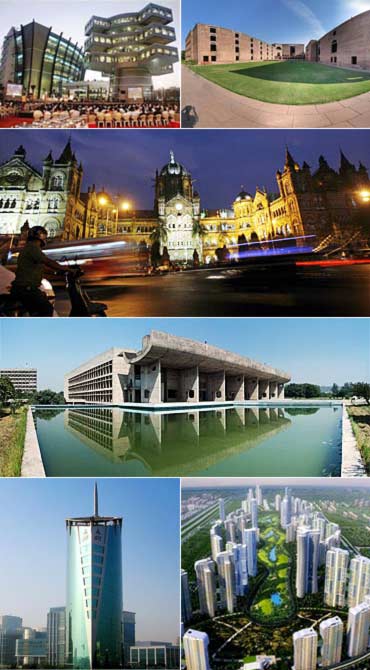
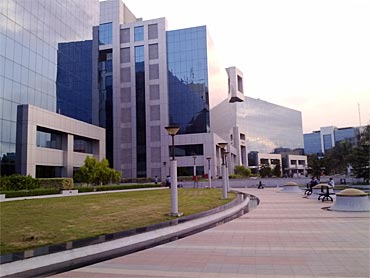
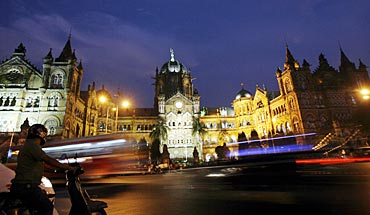
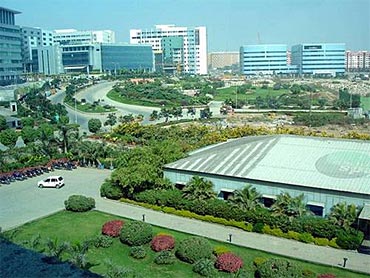
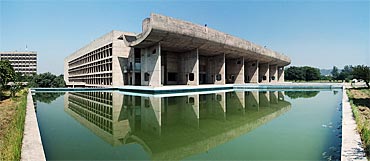
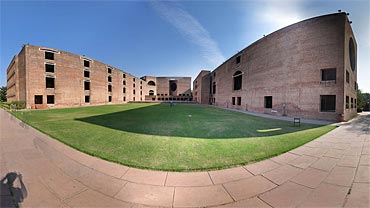

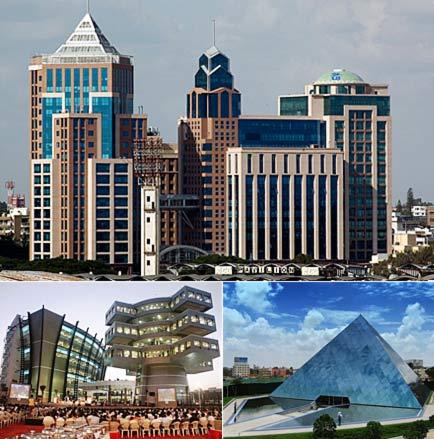
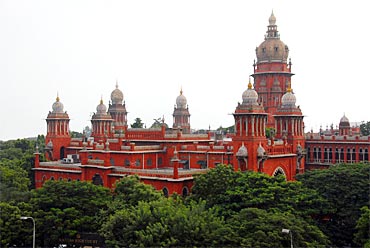
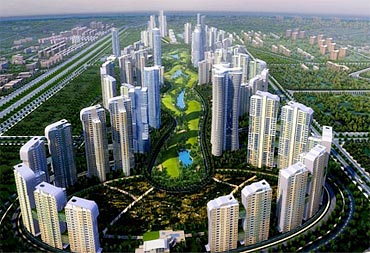
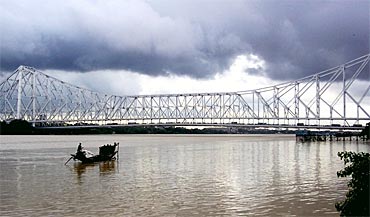
Comment
article